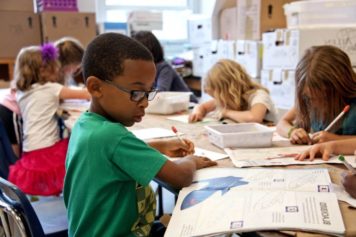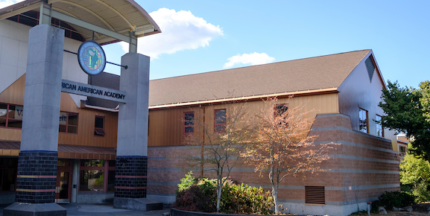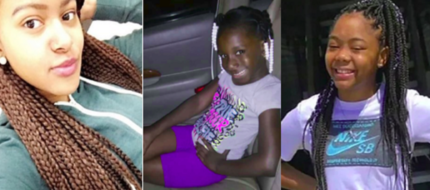
Black students are essentially being robbed of their childhood as immature acts that many young people are guilty of are landing them behind bars rather than in a principal’s office.
After learning about how minor infractions and violations of school policy were leading to a staggering amount of Black students being placed in handcuffs, the legal advocacy group, Southern Poverty Law Center, filed a complaint with the U.S. Department of Justice asking for officials to step in and take a closer look at the practices of Jefferson Parish public schools. Advocacy Group
In one case, a 15-year-old boy tossed Skittles at other students on the school bus. It was a silly decision that should have earned him a stern talking to by his parents or some other appropriate disciplinary action carried out by the school. Instead, he was arrested the next day in the middle of a social studies test. In front of a room full of students he was allegedly placed in handcuffs and had his arms twisted. He was charged with simple battery—for throwing Skittles.
The student was then forced to spend nearly an entire week in Rivarde Juvenile Detention Center, where many of the days he missed in school were counted as unexcused absences.
In grade school, an unexcused absence means educators are not required to allow that student to make up missed assignments or retake the test. The student’s punishment turned out to be even greater than six days in a detention center. The boy was pushed behind academically, and was forced to play a crucial, and nearly impossible game of catch up with his grades.
Sara Godchaux, a New Orleans-based lawyer with the SPLC said the charges and the punishment were outrageous violations of titles VI and IV of the Civil Rights Act of 1964.
“The kid was acting like any other kid—all kids have done that,” Godchaux said, according to the Guardian. “To be charged there with a criminal offense is inappropriate…It’s ridiculous.”
Unfortunately, there are many other stories like that of the teenage Skittle-thrower.
The SPLC listed other examples, including a seventh grade student that was charged with interference with an educational facility because she yelled outside the school.
Then there was the case of a fourth grade student with autism who had an outburst in the middle of class—an occurrence that is quite common among many autistic children. What is far less common, however, is for that autistic child to then be placed in handcuffs and forced to the ground. It is unclear if the student was hit with any charges as a result of the outburst.
Incidents like these have become increasingly common among the district’s Black students, who accounted for 46 percent of the student body during the 2009–2010 and 2010–2011 school years. Despite making up nearly half of the student body, Black students accounted for more than 75 percent of the district’s in-school arrests, the Guardian reports.
By the time 2013 came around, the problem had only gotten worse, even though the SPLC had already issued a complaint in 2012. This time, Black students accounted for 80 percent of all in-school arrests in the district.
So instead of truly learning from their mistakes, students are tossed into America’s unforgiving justice system at an early age. And while wayward behavior shouldn’t be excused, there seems to be a major disconnect when childish actions result in Black students spending time behind bars, instead of learning in the classroom.
“Students are being hauled out of school by police for misconduct that could be better addressed as a potential learning opportunity for that student,” the SPLC’s complaint reads.
Not to mention, it seems to be a guaranteed way to ensure that the rift between the Black community and law enforcement remains in tact. At a young age, students are being pelted with the idea that police don’t have their best interest at heart and consequently form negative associations with all law enforcement.
While the SPLC says the district has been dragging its feet to address the issue, Jefferson Parish public schools communications specialist, Elizabeth Branley, insists that the district is indeed looking into the matter.
“We pledge to work closely with those agencies involved to quickly resolve any issues that we identify,” Branley wrote in an email to the Guardian. “We are committed to ensuring that our students have a safe, healthy environment and are treated equably at school.”
The SPLC added that they believe any type of arrest in school should be reserved only for serious crimes rather than the silly things that nearly every child will be found guilty of doing at some point during their grade school years.


